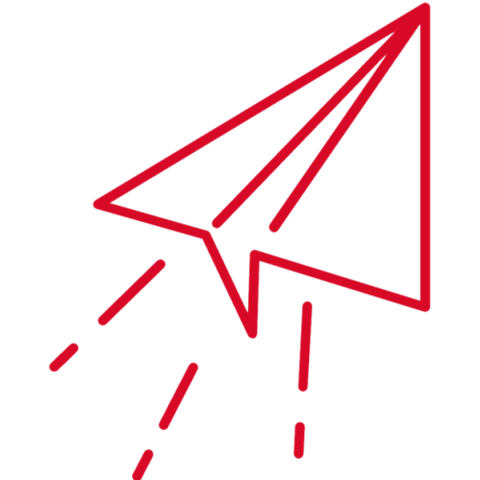Insourcing doesn’t mean you have to do everything yourself
07 Jan 2019
When my girlfriend (now wife) and I bought our first flat, we were pretty skint. So we learned how to assemble flatpack wardrobes, put up shelves and walked miles carrying secondhand furniture because we couldn’t afford the cost of delivery.
Over the years I’ve acquired the knowledge, the confidence, and more importantly the tools to take on most jobs myself. But recently I’ve had someone (Chris) in to lay a beautiful but tricky patio, another (Stuart) to do some plastering and yet another (Vlad) to build something out of metal for me. These three guys are specialists in their fields and as craftsmen are a joy to watch.
Many start-up businesses do a lot of DIY as well, not only because they have no budget but also because they want to retain control of the product or service they’re providing. We’re all familiar with the great campuses of Facebook, Google and Microsoft, and more recently the likes of trainline.com, Booking.com, MoneySuperMarket.com have built huge internal teams to optimise media and customer journeys. Then there those in manufacturing such as James Dyson and Specsavers who seem to be fans of doing a bit of DIY.
STEEP GROWTH CURVES
Interestingly, a trend we’re beginning to see is that many of these businesses have optimised as much as they can and are beginning to outsource their marketing as they search for ways to maintain the steep growth curves they have grown accustomed to.
Meanwhile, almost in perfect synchrony, those brands which are being disrupted are looking to refresh and transform their businesses and, armed now with greater knowledge, feel confident to explore a bit of DIY for themselves.
Two brothers, William and James, worked with a chemist to develop a new manufacturing process for their product idea which they turned into a global business. They decided to set up their own in-house agency to help with their aggressive expansion plans. ‘If you’re too slow, someone will get there before you’, they were thinking. You’ve only to look at how many single brands are dominating categories today: Airbnb, Amazon, Google, Facebook, Dyson, Skyscanner etc.
Their in-house agency quickly expanded and set up offices in many of the new markets where their products were being sold. After a while, the brothers realised that the experience the agency had gained had become an asset in its own right, similar to Ocado realising that it should sell space on its tech platform alongside its grocery business.
The brothers sold off 49% of the agency so that it could compete in the open market and by the 1960s it was the largest advertising agency in Europe. The name of this agency? Lever International Advertising Services, or LINTAS for short.
William and James Lever started their soap business in 1885 and opened LINTAS in 1899. They eventually sold their remaining 51% stake in 1982. At its peak in the 1960s, 80% of the agency’s billings were accounted for by Unilever brands and it was operating in 26 countries.
Today we have Specsavers who do their own work, so taking us back to 1899, and Jaguar Land Rover investing in Spark 44 as a joint venture, so updating the 1930’s LINTAS model. Much in-housing of digital content and media is well underway with the likes of Direct Line and Vodafone setting up sizeable in-house teams now that processes are well understood.
The Lever Brothers were obviously huge DIY fans, but whether any of these newer approaches will last as long as LINTAS did, I couldn’t say. At the end of the day, whatever makes you most competitive will always be the right way to go. Right now, laying your own patio or putting up shelves makes perfect sense for some, but there is always a need for a Chris, Stuart or Vlad to give you that something special that you can’t do yourself. So if they want to navigate this current cycle of DIY, agencies need to focus on the things that clients simply can’t do themselves.
About The Author





